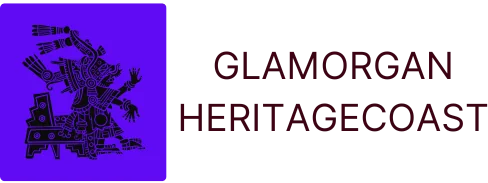In today’s fast-paced world, healthcare mobile apps are like having a personal doctor in your pocket—minus the awkward small talk. These apps empower patients to take charge of their health with just a few taps. From scheduling appointments to tracking medications, they make managing health feel less like a chore and more like a breeze.
Gone are the days of waiting on hold for hours or deciphering cryptic medical jargon. With the right app, patients can access vital information and communicate with healthcare providers anytime, anywhere. Whether it’s monitoring blood pressure or finding that elusive prescription refill, these apps are revolutionizing the way people engage with their health. So why not embrace this tech-savvy approach to wellness? After all, who wouldn’t want their health care to be as easy as scrolling through their favorite cat videos?
Table of Contents
ToggleOverview of Healthcare Mobile Apps for Patients
Healthcare mobile apps streamline patient engagement and enhance health management. These applications provide a platform for users to schedule appointments and track medications seamlessly. With easy access to health information, patients gain control over their healthcare journeys.
Patients communicate with healthcare providers through secure messaging features. Instant access to medical records and lab results promotes informed decisions regarding health. Features like medication reminders help users adhere to treatment plans effectively.
Data from the Pew Research Center shows that 52% of smartphone users track their health. This trend reflects the growing reliance on technology in managing personal health. Many healthcare apps incorporate fitness trackers and nutrition logs to support comprehensive wellness.
Integration with wearable devices further enhances patient experience. Real-time data collection from wearables offers insights into physical activity and vital signs. This information can be shared with healthcare professionals, improving monitoring and intervention.
Virtual consultations offered by some apps expand access to healthcare services. Patients, especially in rural areas, benefit considerably from telehealth features. Reducing barriers such as transportation and wait times makes healthcare more accessible.
Security and privacy remain top priorities for app developers. Compliance with regulations like HIPAA ensures that personal health data is protected. Users can feel assured that their information remains confidential.
Overall, the rise of healthcare mobile apps signifies a paradigm shift in patient interaction with the healthcare system. These tools empower patients, fostering engagement and encouraging proactive health management.
Key Features of Effective Healthcare Mobile Apps
Effective healthcare mobile apps incorporate various functionalities that enhance user experience and ensure patient safety. These features contribute significantly to improved health management and user satisfaction.
User-Friendly Interface
An intuitive user interface simplifies navigation for patients, promoting engagement with health tools. Patients easily schedule appointments, access lab results, and manage medications. Visually appealing designs combined with straightforward navigation enhance usability. Incorporating features such as voice commands or text-to-speech capabilities makes these apps more accessible for users with disabilities. User feedback plays a crucial role in continuously refining the interface. Thus, healthcare providers favor apps that offer personalization options, enabling tailored experiences based on individual preferences and needs.
Secure Patient Data Management
Security measures are fundamental to healthcare mobile apps, ensuring protection of personal health information. Compliance with regulations like HIPAA guarantees that sensitive data remains confidential. Encryption technologies safeguard communications between patients and healthcare providers, enhancing trust. Regular audits and security updates minimize vulnerability to breaches. Patients benefit from features that allow for easy management of privacy settings. Users often find reassurance in knowing they control who accesses their health data. By prioritizing data security, healthcare apps foster a safe environment for patients to engage in their health journeys.
Benefits of Using Healthcare Mobile Apps
Healthcare mobile apps deliver significant advantages for patients, transforming the way they interact with their health management. These benefits include improved patient engagement and enhanced access to healthcare services.
Improved Patient Engagement
Apps empower users to take charge of their healthcare journeys. Instant reminders for medications help maintain adherence. Access to personalized health information fosters a deeper understanding of one’s health status. Over 52% of smartphone owners track their health with these apps, illustrating how technology supports health management. Secure messaging features enable direct communication with healthcare providers, allowing for timely responses and support. Virtual platforms for consultations further increase engagement, assuring users that help is just a tap away.
Enhanced Access to Healthcare Services
Mobile apps broaden access to essential healthcare services. Patients in rural or underserved areas benefit immensely from the convenience these apps provide. Scheduling appointments can happen anytime, bypassing traditional office hours. Virtual consultations eliminate barriers like transportation and lengthy wait times, promoting timely healthcare. Real-time updates on lab results and medical records supply patients with crucial information quickly. Secure features further protect personal health data, assuring users of confidentiality as they engage with their health.
Popular Healthcare Mobile Apps for Patients
Numerous mobile apps enhance patient engagement and health management. These applications provide convenient access to healthcare services and support decisions based on real-time data.
App Reviews and Ratings
Many patients rely on reviews and ratings to evaluate healthcare apps. App stores reflect this trend, highlighting user feedback and satisfaction levels. A high rating often indicates a user-friendly interface and reliable functionality. For instance, apps such as MyFitnessPal and Medisafe consistently receive positive reviews for their ease of use and helpful features. Ratings, however, can vary based on individual experiences, so reading multiple perspectives aids in making informed choices.
Unique Features of Each App
Distinct features set healthcare apps apart from one another. Telehealth apps like Zocdoc offer video consultations, bridging the gap between patients and care providers. Medication management apps such as Medisafe provide personalized reminders to ensure adherence to prescribed treatments. Fitness applications, like Fitbit, integrate activity tracking with health data insights. Each app caters to specific needs, with personalization options becoming increasingly vital in enhancing user experience.
Future Trends in Healthcare Mobile Apps for Patients
Artificial intelligence (AI) is driving significant advancements in healthcare mobile apps, enabling personalized experiences for users. Enhanced algorithms analyze user data, leading to tailored health advice and recommendations. Telehealth services will evolve further, integrating virtual reality for immersive consultations, making remote healthcare more engaging.
Integration with Internet of Things (IoT) devices stands out as a key trend, allowing for real-time health monitoring. Wearable devices, such as smartwatches and fitness trackers, continuously supply valuable data to healthcare apps. This streamlining of data collection supports proactive health management, fostering patient empowerment.
Blockchain technology promises to revolutionize data security, protecting sensitive health information. Emphasizing user privacy, this decentralized approach minimizes the risk of unauthorized access. Moreover, patient education features within apps will gain importance, offering accessible resources to promote informed health decisions.
Increased focus on mental health solutions will continue, with apps providing resources for stress management and wellness support. Gamification elements, such as challenges and rewards, can enhance user engagement with these mental health tools.
Healthcare mobile apps will also emphasize interoperability, ensuring seamless communication between different platforms. This capability promotes comprehensive care by enabling healthcare providers to share patient data easily.
With growing concern around health disparities, apps will aim to cater to underserved populations. Language options, culturally relevant resources, and accessibility features will help bridge these gaps. Evidence shows that 52% of smartphone users track their health, highlighting the need for innovative solutions in personal health management.
These trends reflect an ongoing commitment to enhancing patient engagement and improving health outcomes through technology.
Conclusion
Healthcare mobile apps are revolutionizing the way patients manage their health. With features that enhance engagement and streamline communication with providers, these apps empower users to take control of their healthcare journeys. The integration of advanced technologies like AI and IoT promises even greater personalization and real-time monitoring in the future.
As patients increasingly rely on these tools, the importance of data security and user-friendly design cannot be overstated. This shift not only improves access to healthcare services but also encourages proactive health management. Embracing these innovations will undoubtedly lead to better health outcomes and a more connected healthcare experience for all.










